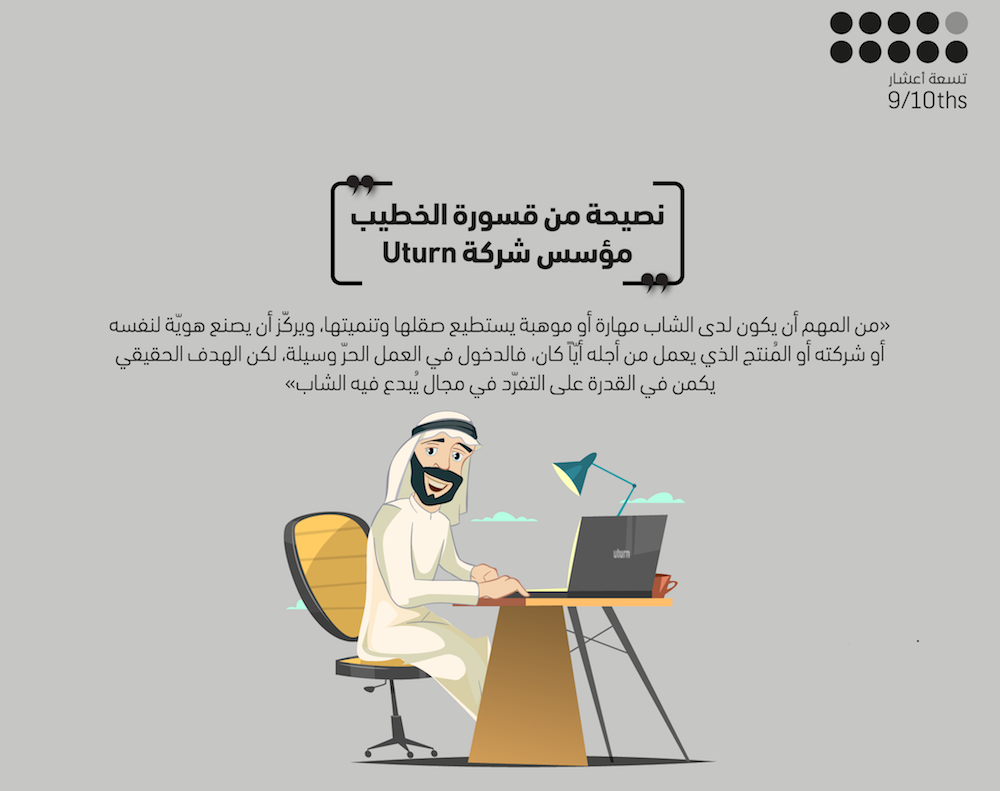New non-profit accelerator launches in Saudi Arabia

The small investment ecosystem in Saudi Arabia is forcing startups to either start late or too slowly - so says Ozan Sonmez from King Abdullah University of Science and Technology about the launch of 9/10ths initiative in the Kingdom.
Currently SMEs contribute only 20 percent of Saudi Arabia’s GDP, compared to up to a 70 percent contribution in advanced economies. But as a part of the country’s Vision 2030, the government of Saudi Arabia is looking to create suitable job opportunities for its citizens by supporting SME entrepreneurship, privatization and investments in new industries.
9/10ths is an initiative by the Saudi Human Resources Development Fund (HRDF), in partnership with King Abdullah University of Science and Technology (KAUST).
"KAUST is our partner. We fund the initiative and KAUST runs it," said Najla Barasain, head of business development at 9/10ths.
As part of Vision 2030 the government has promised to establish additional new business incubators, specialized training institutions and venture capital funds to help entrepreneurs in developing their skills and networks - as well as enhancing access to funding and encouragement of financial institutions to allocate up to 20 percent of overall funding to SMEs by 2030.
"We want to move Saudi Arabia from being job consumers to job producers," said Barasain.

9/10ths: a nonprofit initiative
The program was launched by the Saudi Human Resources Development Fund in the beginning of 2016 with the fundamental aim of guiding startups from idea to market stage, and then out of Saudi Arabia.
The incubator offers a not-for-profit scheme, of early stage mentorship and early stage funding, where no equity is acquired in exchange for the seed money provided.
Sonmez explained to Wamda that they wanted to give the startups the opportunity to fail without any remorse. “Even if there’s no return from the startups, KAUST and HRDF are funding the program itself,” he said.

While there are no legal agreements with the incubated teams, Sonmez hopes, in the long run, that they can get the graduated companies to invest back into the incubator community by putting some of their revenue towards the cycle to support more startups. He hopes that the graduated startups’s need for new tech and talent will keep them connected to the program.
Three-stage incubation process
9/10ths designed a one month pre-accelerator program where they take up to 20 teams, put them into a boot camp, with design thinking, customer thinking, and customer discovery workshops. During this program each team is given around $1,000 to test their hypothesis, and to prove the validity of their ideas.
“Our eligibility criteria is uniquely designed, we do not believe that somebody can meet a team for 30 minutes and understand the potential of the team, there are so many false positives and false negatives,” said Sonmez.
At the end of the boot camp they select 10 teams. During the program teams receive between $4,000 and $6,000 to continue developing their products for a month. At the end of each month they have to pitch their product in order to receive a second batch of funding.
The accelerator program runs for three months and by the end each would will have received between $15,000 and $20,000. A showcase event then allows teams to exhibit their products, after which teams can stay on in an incubation program, rent free.

A growing startup ecosystem in KSA
The last few years have seen many new startup accelerators launching in Saudi Arabia.
Flat6labs, Inspireu, and Wa’ed are three. While specifics of each program differs 9/10ths hopes to distinguish itself by focusing on community impact rather than simply the exit strategies of the startups it’s supporting.
“We are not into high-growth copy-cat models, which other accelerators will have to fund,” Sonmez told Wamda. “They are always searching for exit strategies.” He believes that with their pre-accelerator program even those not selected for the final 10 find value. “Other programs have to do a more tough selection process.”
Assim Groosh, the founder of Eshraq, a platform for part-time job seekers in Saudi Arabia, and one of the graduates of the first batch of startups from 9/10ths, describes the program as “a support group where everyone is there to help and make sure you are on the correct path to success”.
The first batch of startups started the accelerator phase of the program in February of this year, and graduated June 5. They are in the incubation phase now.
The graduated companies include, in addition to Eshraq, Qirtas Toys, a company that makes 3D puzzles derived from ancient Arab inventions, and Geeks Valley, a free online learning system that includes tutorials and videos on how to do electronics projects.
The 9/10ths program will be open for the next batch of startups in February 2017.


